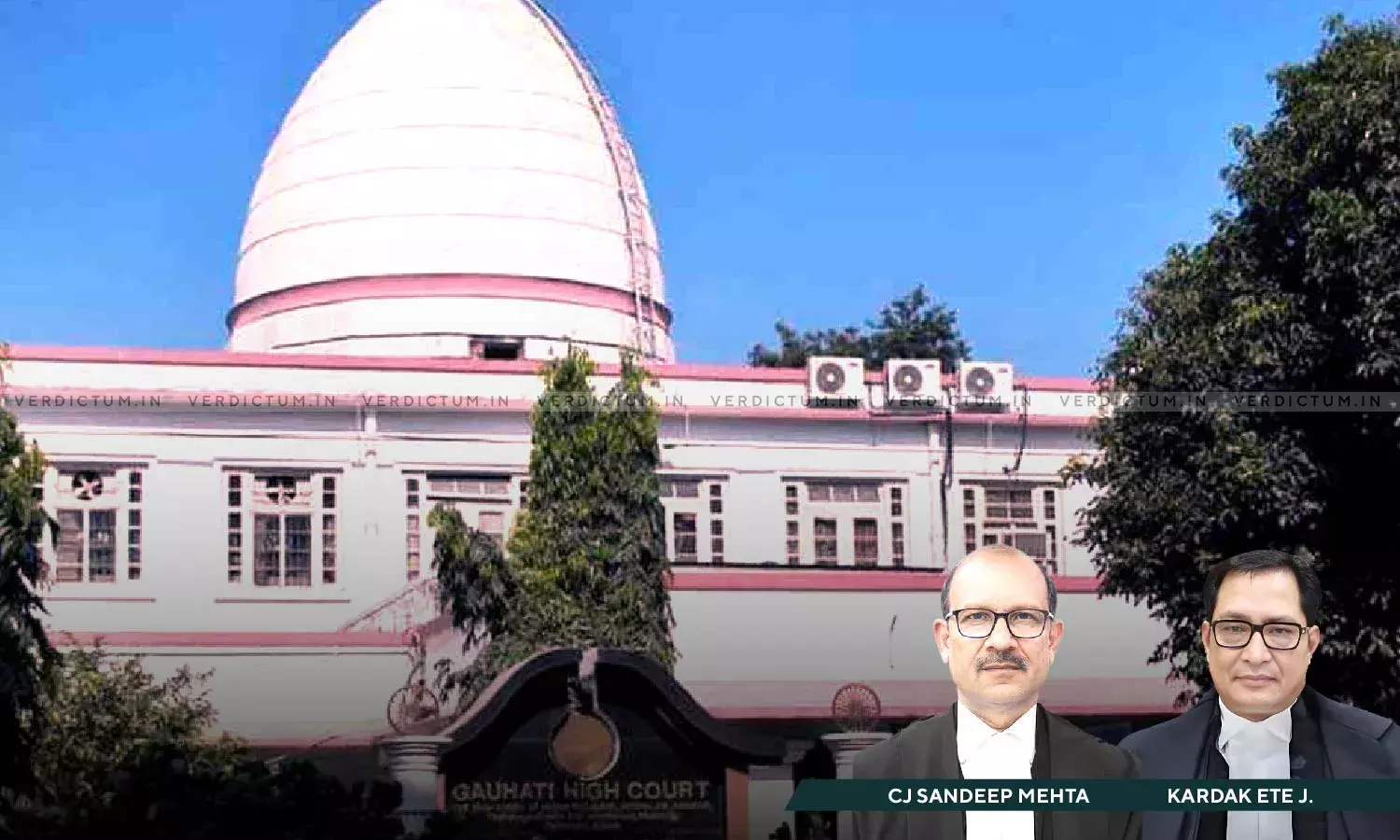No Right To Demand Prayer Room At Public Place Like Airport: Gauhati High Court Dismisses PIL

The Gauhati High Court has held that no litigant can be permitted to seek direction to the Government to establish a dedicated place for professing religious practices at an airport. The Court held that rights under Articles 25 and 26 of the Constitution cannot be stretched to demand a prayer room in a public space like airport.
The Court was dealing with a PIL (Public Interest Litigation) filed by a man (petitioner) who sought direction to the respondents to set up a dedicated prayer room in the precincts of the Lokpriya Gopinath Bordoloi International Airport, Guwahati. Earlier, the Court had provided a time of 15 days to the petitioner to prepare and address the court regarding the relief sought for in the said PIL. It had refused to issue notice and asked why prayer room for a particular community.
A Division Bench of Chief Justice Sandeep Mehta and Justice Kardak Ete said, “The claim of the petitioner that prayer rooms are provided in some of the airports across the country and thus a similar facility should also be directed to be set up in the precincts of Lokpriya Gopinath Bordoloi International Airport, Guwahati does not impress this Court even for a moment. The background facts in which prayer rooms facilities referred to above came to be established have not been placed on record of the writ petition. We feel that no litigant can be permitted to seek a direction upon the Government to establish a dedicated place for professing religious practices in an airport.”
The Bench held that by not providing a similar facility at the precincts of Lokpriya Gopinath Bordoloi International Airport, Guwahati, no fundamental right of the petitioner is being breached.
The petitioner, Rana Saidur Zaman appeared in person while Advocate B. Devi appeared on behalf of the respondents.
The petitioner urged before the court that the passengers belonging to different religions, while travelling through Guwahati Airport, were not having access to any proper prayer room facility which existed in various other airports across the country like Delhi International Airport, Mumbai International Airport, Mangaloroo Airport, Agartala Airport, etc. He relied on some Supreme Court judgments and claimed that Article 25 of the Constitution guarantees the freedom of conscience and right to freely profess, practice and propagate religion not merely to the citizens of India but to every person.
The petitioner also referred to Article 26 of the Constitution and urged that the Constitution has guaranteed any religious denomination or section of it, the right to establish and maintain institutions for religious and charitable purposes and to manage in its own way, all affairs in the matters of religion. He thus urged that the people following all religions have a right to seek a direction upon the respondents to establish a dedicated prayer room in the precincts of the said airport as to facilitate the fundamental right of offering prayer.
The High Court in view of the aforesaid prayers made by the petitioner noted, “We are of the firm view that Articles 25 and 26 of the Constitution of India give freedom to people from a particular denomination to profess a particular religion and to acquire movable and immovable properties and to administer such properties in accordance with law. However, such rights cannot be stretched to the extent that such denomination can demand setting up of a dedicated prayer facility in a public place like an airport.”
The Court said that it is in the domain of the Government or the Airport Authority of India to take a decision whether particular kind of facilities are required to facilitate the people accessing the airport, more so, when the plea is for a religious facility.
“The High Court, while exercising the extra-ordinary writ jurisdiction conferred upon it by Article 226 of the Constitution of India, cannot be asked to interfere with any such policy decisions of the Government. At this stage, the petitioner prayed that he may be allowed to approach the concerned authorities with a representation for ventilating his grievances. We are of the firm opinion that petitioner has not been deterred from filing such representation and no permission of the Court is required for the same”, observed the Court.
Furthermore, the Court said that it did not find any averments that could convince that the petitioner has been authorized/sponsored by the members of society at large to plead their causes in such a writ petition branded to be a PIL.
“… we neither find merit in the claim laid by the petitioner-in-person in this writ petition nor do we find that the writ petition espouses any public cause so as to grant the relief sought for”, concluded the Court.
Accordingly, the High Court dismissed the writ petition.
Cause Title- Rana Saidur Zaman v. The Union of India & Ors.


